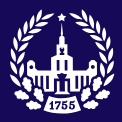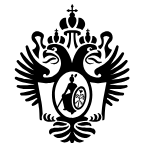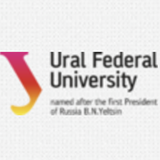Introduction
Tula State University is the largest state university in Tula, central Russia. It was founded in 1930 and is recognized as one of the leaders of higher education in the field of engineering in Russia. It provides full-time and part-time education, covers a wide range of disciplines, and cultivates professionals in all aspects.
Overview
Student size: more than 20,000 students, including 400 postgraduates and 600 foreign students.
Faculty: The school has a total of 2,400 faculty and staff, including more than 1,200 teachers. The faculty is strong and can provide students with high-quality education and teaching services.
History and establishment time
Tula State University was founded in 1930 In the past few decades, it has continued to grow and develop, and has gradually become one of the important higher education institutions in central Russia.
School Strength
Teaching Achievements: The school has trained a large number of outstanding professionals for Russia and other countries, covering mathematics, mechanics, physics, chemistry, psychology, political science, history, medicine and other fields. Graduates play an important role in their respective jobs.
Scientific Research Strength: The school's scientific research work covers many fields, including obtaining funding support through scientific research projects, conducting research based on economic contracts, training senior professionals, and cooperating with scientific research institutes of the Russian Academy of Sciences. It also actively carries out patent and licensing activities, organizes students to participate in scientific research, and publishes a large number of academic monographs and scientific publications.
International Cooperation: Cooperation with 20 countries such as the United States, the United Kingdom, Germany, Hungary, the Czech Republic, and China It has established scientific and educational links with universities in many countries, actively carried out international exchange and cooperation projects, provided a broad international exchange platform for students and teachers, and enhanced the international influence of the school.
Nature of the institution
Public university.
Educational philosophy
Focus on cultivating students' professional knowledge and practical ability, and is committed to cultivating high-quality professionals with innovative spirit and social responsibility for the society, so that students can contribute to the development of the country and society in different fields. At the same time, it also emphasizes the all-round development of students, encourages students to actively participate in various club activities and sports, and improve their comprehensive quality.
Key laboratories and disciplines
Key laboratories: No clear national key laboratories of the school were found, but the school has a number of scientific research departments and laboratories, which provide strong support for scientific research work in various disciplines. For example, laboratories in physics, chemistry, biology and other disciplines are equipped with relatively advanced experimental equipment and instruments to meet the needs of teaching and scientific research.
Key disciplines: The engineering field is its traditional advantage discipline and is in a leading position in Russia. In addition, computer science, economics, law, humanities, medicine and other disciplines also have strong teaching and research strength, providing students with a wide range of professional choices and good learning conditions.
Department
The school has nine departments, including the Department of Mechanics and Control Systems, the Department of Cybernetics, the Department of Mining Construction, the Department of Technology, the Department of Science, the Department of Mechanics and Mathematics, the Department of Economic Law, the Department of Humanities and the Department of Medicine, as well as a university preparatory center, a regional professional development center and 73 departments.
Ranking
In the 2022 QS Emerging Europe and Central Asia University Rankings, Tula State University ranks 401-450.
Expenses
Tuition: In the 2022-2023 academic year, the 6-10-month university preparatory Russian language training course is 100,000 rubles; undergraduate and junior college courses are 111,900-220,000 rubles per year; master's programs are 119,200-235,000 per year. rubles; 141,000-207,000 rubles per year for doctoral programs, residency and postdoctoral fellows.
Accommodation: The cost of accommodation in the dormitory is 800 rubles per month.
Medical insurance premium: The cost of a voluntary medical insurance policy is 8000-10,000 rubles per year.
Campus
Teaching facilities: There are medical facilities such as a general hospital and a clinical medical center on campus, which provide a place for practice for medical students and also provide protection for the health of teachers and students. In addition, it also has the largest dormitory complex in the Tula region, sports buildings, a world-class football field and two swimming pools, which provide good conditions for students' daily life and physical exercise. The school also has cultural facilities such as the University History Museum, the Museum of Weapons and Tools, and the Geological Museum, which enrich students' extracurricular life and broaden their knowledge.
Living facilities: The school's dormitory complex provides students with a comfortable accommodation environment with complete facilities in the dormitory. There are also dining facilities such as canteens and cafes on campus, providing students with a variety of dietary options. In addition, the school is surrounded by convenient transportation and complete living facilities, which facilitates students' daily life.
-

Peter the Great St.Petersburg Polytechnic University
-

Moscow State University M. V. Lomonosov
-

Bauman Moscow State Technical University
-

St. Petersburg State University
-

Tomsk State University
-

Peoples' Friendship University of Russia
-

Don State Technical University
-

Ural Federal University
-

Moscow Institute of Physics and Technology
-

Kazan Federal University
-

Mesoamerican University
-

Istmo University
-

Mariano Galvez University of Guatemala
-

Regional University of Guatemala
-

Galileo University
-

Francisco Marroquín University
-

Rafael Landívar University
-

University of the Valley of Guatemala
-

University of San Carlos of Guatemala
-

Technological Institute of Tlaxcala Plateau
-

Golfo University
-

Technological University of South Sonora
-

Technological University of Huejotzingo
-

Tizimín Institute of Technology
-

Chilpancingo Institute of Technology

